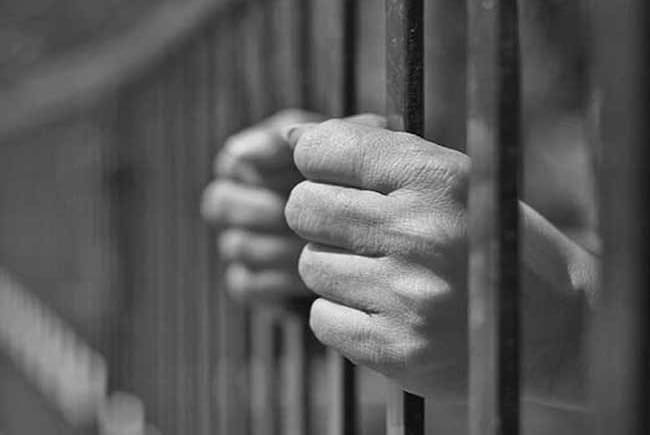
Representational Image.
Washington:
The United States is preparing to release thousands of prisoners considered at low risk of returning to crime, as part of an effort to ease prison overcrowding and redress overly harsh sentences.
The measure stands to benefit petty criminals and drug users sentenced to long prison terms for minor, non-violent offenses.
According to the Washington Post, about 6,000 prisoners will be set free around November 1, a US record for a single mass release. Most will go through half-way houses or home confinement before being freed under supervision.
The release comes after the US Sentencing Commission, which sets policy for federal crimes, reduced its sentencing guidelines for drug possession.
Applied retroactively with effect November 1, the reform clears the way for an estimated 46,000 inmates to eventually benefit from the policy change and escape the automatic application of heavy sentences.
Contacted Wednesday, the Commission would not specifically confirm that the first group would number 6,000, but said that almost 8,000 prisoners could be eligible for release from the start of next month.
"We have received documentation from the courts on roughly 17,446 cases that we processed as of August 3, 2015," Matt Osterreider, the commission's legislative specialist, told AFP.
"Of these, the courts granted a reduction in 13,187 cases. In July 2014, the Commission estimated that 7,953 offenders could be eligible for immediate release on November 1, 2015 with another 8,550 being released over the next year."
The release program is the work of former US attorney general Eric Holder, who made easing prison overcrowding a priority, and the commission shepherded the reform through Congress.
While the US population has increased by 30 percent since 1980, the country's prison population jumped 800 percent during the same period.
The result is a record rate of incarceration for an industrialized country, which has overburdened the federal prison system.
Federal prisons are now at 32 percent over capacity while federal maximum security prisons are at 52 percent over capacity.
The development was welcomed by UN Secretary General Ban Ki-moon, who noted that states "should only apply deprivation of liberty as a measure of last resort and only after alternatives have been duly considered.
"Over-incarceration constitutes one of the major underlying causes of overcrowding, which results in conditions that can often amount to ill-treatment or even torture," he said.
"Consideration needs to be given to alternatives to criminalization and incarceration of people who use drugs, with an increased focus on public health, prevention, treatment and care," he said.
The measure stands to benefit petty criminals and drug users sentenced to long prison terms for minor, non-violent offenses.
According to the Washington Post, about 6,000 prisoners will be set free around November 1, a US record for a single mass release. Most will go through half-way houses or home confinement before being freed under supervision.
The release comes after the US Sentencing Commission, which sets policy for federal crimes, reduced its sentencing guidelines for drug possession.
Applied retroactively with effect November 1, the reform clears the way for an estimated 46,000 inmates to eventually benefit from the policy change and escape the automatic application of heavy sentences.
Contacted Wednesday, the Commission would not specifically confirm that the first group would number 6,000, but said that almost 8,000 prisoners could be eligible for release from the start of next month.
"We have received documentation from the courts on roughly 17,446 cases that we processed as of August 3, 2015," Matt Osterreider, the commission's legislative specialist, told AFP.
"Of these, the courts granted a reduction in 13,187 cases. In July 2014, the Commission estimated that 7,953 offenders could be eligible for immediate release on November 1, 2015 with another 8,550 being released over the next year."
The release program is the work of former US attorney general Eric Holder, who made easing prison overcrowding a priority, and the commission shepherded the reform through Congress.
While the US population has increased by 30 percent since 1980, the country's prison population jumped 800 percent during the same period.
The result is a record rate of incarceration for an industrialized country, which has overburdened the federal prison system.
Federal prisons are now at 32 percent over capacity while federal maximum security prisons are at 52 percent over capacity.
The development was welcomed by UN Secretary General Ban Ki-moon, who noted that states "should only apply deprivation of liberty as a measure of last resort and only after alternatives have been duly considered.
"Over-incarceration constitutes one of the major underlying causes of overcrowding, which results in conditions that can often amount to ill-treatment or even torture," he said.
"Consideration needs to be given to alternatives to criminalization and incarceration of people who use drugs, with an increased focus on public health, prevention, treatment and care," he said.
Track Latest News Live on NDTV.com and get news updates from India and around the world

